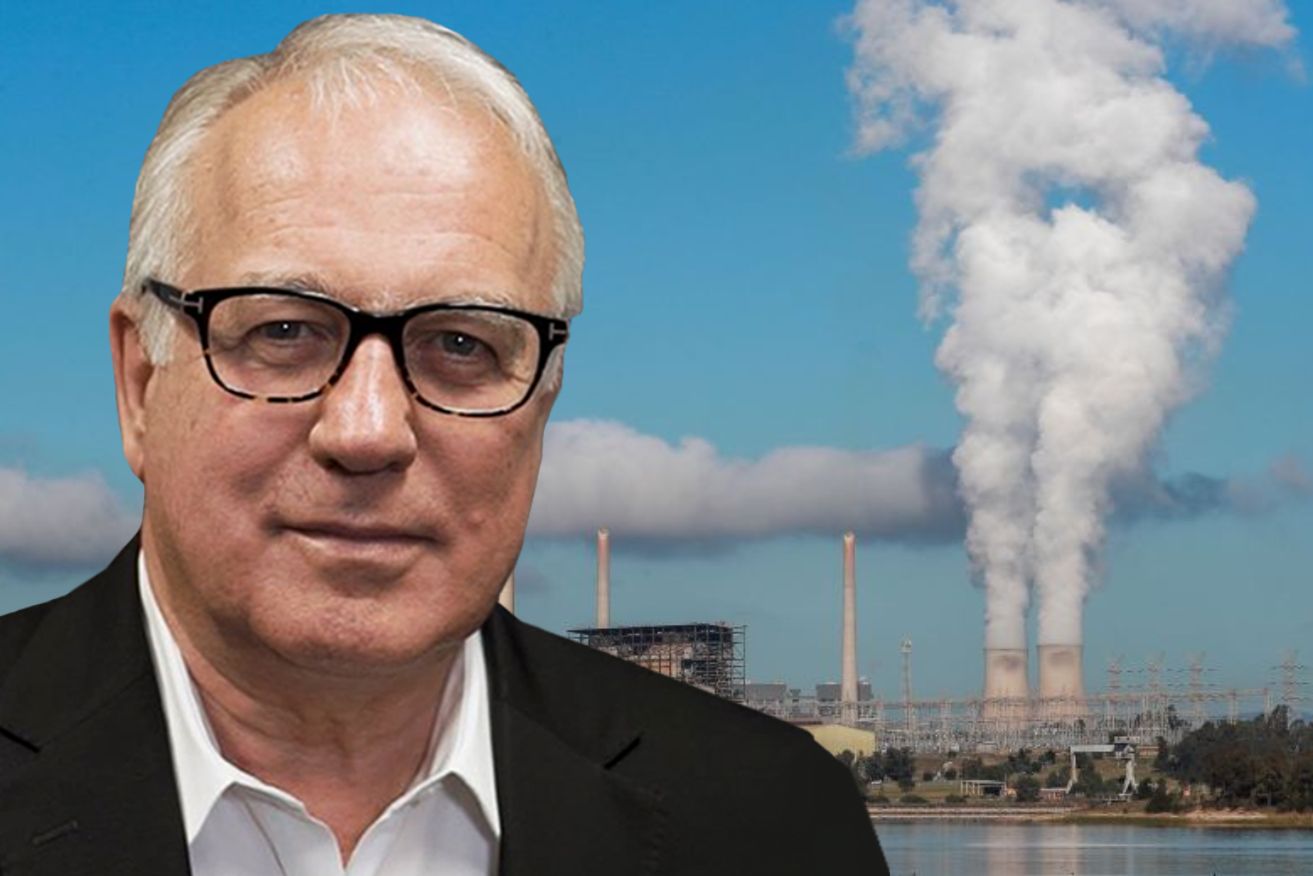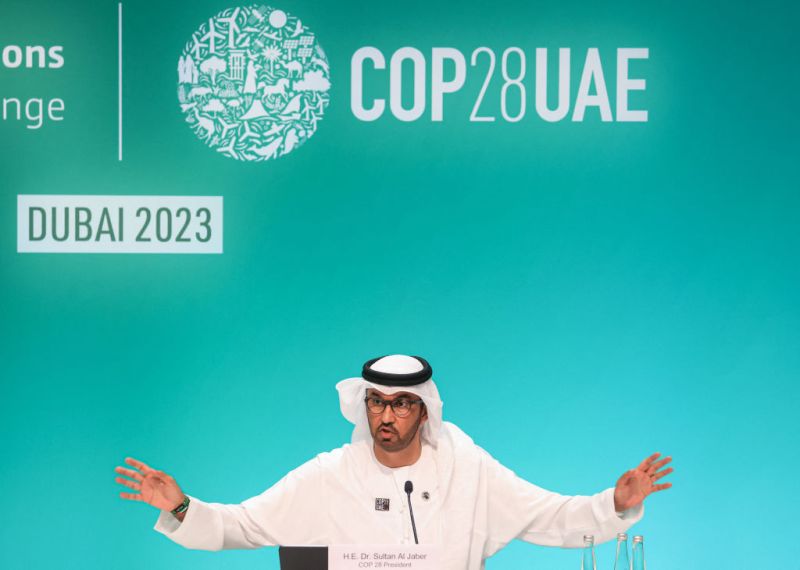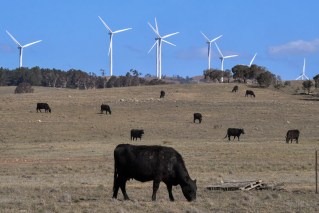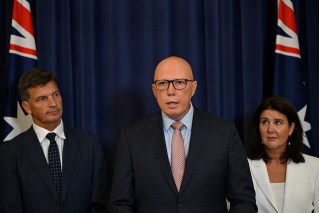Alan Kohler: After COP28, Australia will need a viable post-fossil fuels export plan


Australia's logic to continue selling fossil fuels is flawed, writes Alan Kohler. Photo: TND/Getty
A cartoon appeared in The Week magazine in 2021, at the end of the 26th climate change conference in Glasgow that showed a puny human poking a monster labelled ‘Climate Change’, while saying: “We had a very big climate conference this year, and if you do not relent, I warn you, we will have another.”
Well, it didn’t relent in 2022, so we had another – in a posh Egyptian resort – and then when it still didn’t relent, everybody flew to Dubai last weekend, many in private jets, and we had another one – COP28.
The United Arab Emirates, of which Dubai is the largest city, is the world’s sixth-largest oil exporter, and the president of this year’s gathering has been Dr Sultan Ahmed Al Jaber, chief executive of the UAE’s state-owned oil company, Abu Dhabi National Oil Company.
You couldn’t make it up, and no doubt someone will turn it into a comedy series for TV in the style of Utopia, or The Games. Sultan Al Jaber even helped with some early scripting by saying, according to The Guardian, that “there is no science out there, or no scenario out there, that says that the phase-out of fossil fuel is what’s going to achieve 1.5 degrees Celsius”.
On Monday he called an emergency press conference to walk that back: “I have said over and over that the phase down and the phase out of fossil fuel is inevitable. In fact, it is essential … it needs to be orderly, fair, just and responsible.”
It looks like COP28 might conclude with the first call to phase out fossil fuels. For Australia, that’s a big deal.
Aside from the sideshow with the Sultan, Dubai’s COP28 got off to a good start with an agreement about the money for a Loss and Damage Fund, to compensate poor countries for the effects of climate change.
Or rather, it was an announcement, not an agreement. The agreement to create the fund happened at COP27 last year.
The final round of talks about the money and who will administer the fund broke down in October, so I wrote here that I thought this meant COP28 would be a waste of time and get nowhere, but to prove me wrong, Sultan Al Jaber announced on day one of the conference that he had “gaveled the first major milestone of COP28 delivering a historic agreement to operationalise the fund”.
The UAE will put in $US100 million, he said, and then Germany followed up with $US100 million as well, the rest of the EU another $US145.39 million, the UK “at least” $US51 million, the US $US17.5 million and Japan $US10 million. Total: $US423.89 million. (Australia’s cheque is in the mail.)
The money will last about 12 months and then more will have to be prised from the fists of rich countries expanding their military budgets and struggling with healthcare budgets, and they still haven’t agreed on who will run it. The rich countries want it to be the World Bank (i.e. them) and poor countries want it to be a special body of the United Nations (i.e. them).

COP28 president Sultan Ahmed Al Jaber speaks during a press conference at the United Nations climate summit in Dubai on Monday. Photo: Getty
In any case, while COP27 was all about the Loss and Damage Fund, the central issue at this one is whether the communique says “fossil fuels should be phased out” or “fossil fuels should be phased down”.
“Down” is an attempt by the coal and oil lobbies to prolong their profits for a few more years; “out” is what is actually needed to achieve net-zero emissions.
And despite the presence of thousands of fossil fuel delegates in Dubai, the draft communique released on Tuesday went with “out”, not “down” referring to: “an orderly and just phase-out of fossil fuels”.
And on Wednesday morning Australian Climate Change Minister, Chris Bowen, said he would be comfortable with a “properly phrased move towards phase-out”.
But is he talking about Australia’s exports of coal and gas, or just domestic use?
Up to now whenever the subject of phasing out fossil fuels comes up he has changed the subject to renewables, and the government has been approving new coal mines and gas projects for export, on the grounds that if we don’t sell it someone else will, which is the excuse used by heroin dealers.
And in the financial year to June 2023, $11.1 billion was paid in fossil fuel subsidies.
But even if Australia takes the easy path that phasing out fossil fuels means domestic use and not exports, the government must assume that coal and gas customers who sign the Dubai pledge will take it seriously.
That means COP28 is the moment when Australia must develop and publish a post-fossil fuel export strategy. It could be hydrogen, but as the Grattan Institute pointed out in a detailed report this week, that will take a lot of hard work and government support.
This week, the Australian Climate Council produced a report calling out the lending by the big four banks to fossil fuel expansion projects since 2015, when they all solemnly committed to Net Zero by 2050. The amount lent is $57.5 billion, including $9.5 billion directly for new projects that “undermine efforts to invest in zero emissions alternatives”.
Also, the 15 largest super funds, of which most, if not all, are on the Net Zero wagon, have at least $25.1 billion invested in coal, oil, and gas expansion, according to the Climate Council.
After this week, we should assume that capital will dry up and customers will start cancelling orders for coal and gas; Australia must not only start phasing out fossil fuel exports, but also have a viable plan for life after them. Here’s an idea for how to do the first part of that.
The government is in the process of implementing an independent review of the Environment Protection and Biodiversity Conservation Act that Graeme Samuel finished in 2020, with amendments due before Parliament in 2024 sometime.
The law is mainly about protecting the natural environment and “iconic places”, including Indigenous heritage, but among many other trenchant criticisms of it, Samuel found that it “is not fit for current or future environmental challenges, such as climate change”.
The government should include in the EPBC Act a provision that all cost/benefit analyses of new fossil fuel export projects must include the actual costs to the planet of the emissions – wherever they occur.
Fossil fuel exports are not someone else’s problem, but ours, because we wear the effects of global warming.
As the executive director of the International Energy Agency, Fatih Birol, said: “Emissions do not have a passport”.
Alan Kohler writes twice a week for The New Daily. He is finance presenter on the ABC News and also writes for Intelligent Investor








